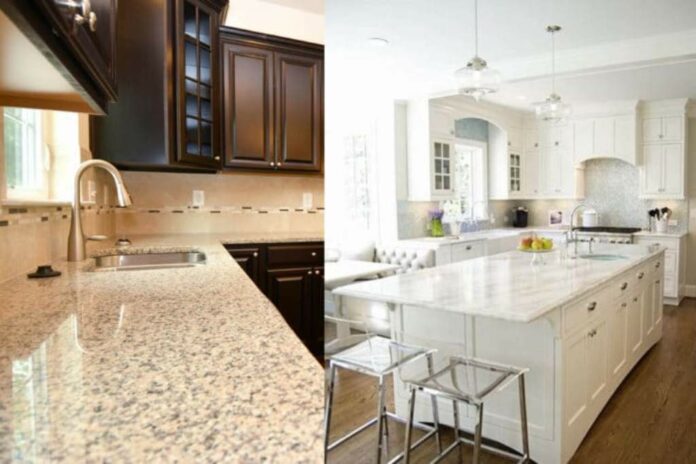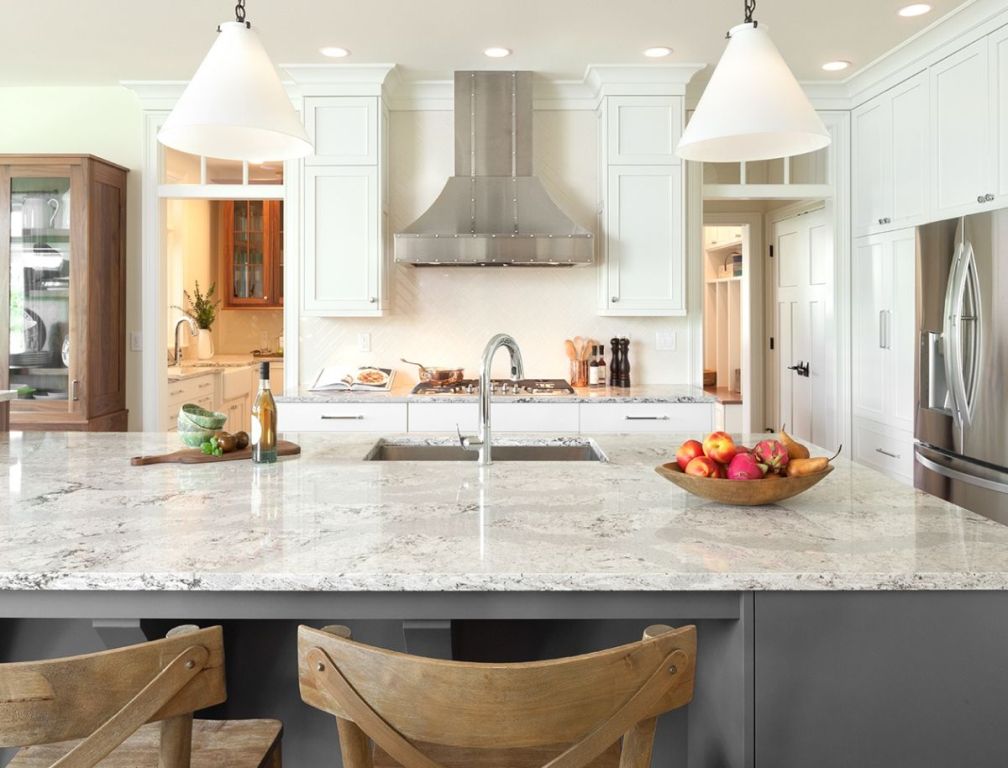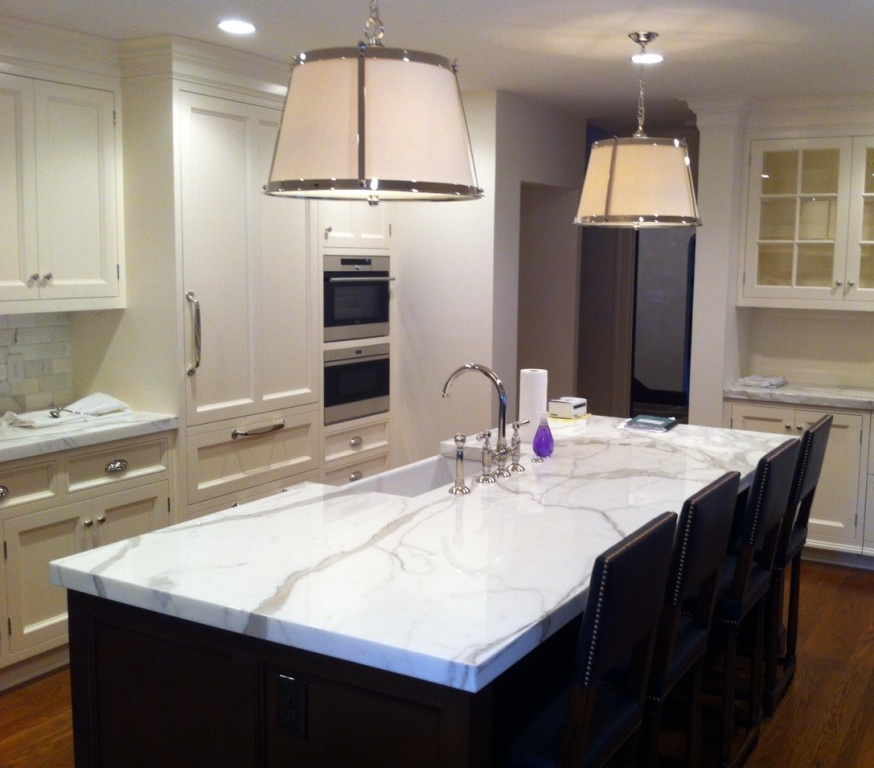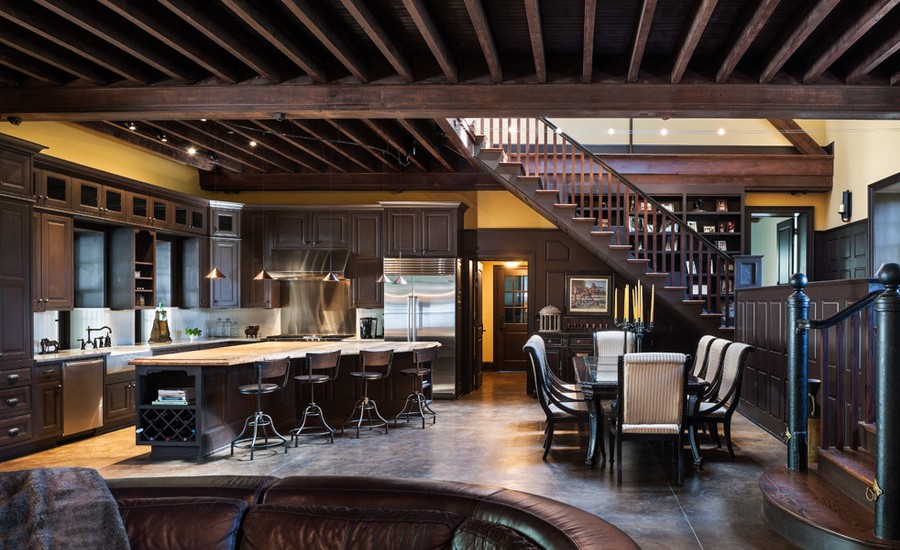Finding the right countertop for your kitchen or bathroom is more than a matter of aesthetics. There are many other things to consider like the composition, durability, maintenance, environmental issues, and real-estate value. When it comes to countertops, there’s no dearth of interesting options available in the markets today. However, the choice often boils down to granite and quartz for most people. And this is a difficult choice indeed! Both granite and quartz have a lot of good qualities that most home owners look for in their countertop materials. So, how do you choose between them? Here is a comparison of the pros and cons of granite vs. quartz countertops to help you make the best choice for you.
Composition
Granite and quartz may both look like stone, but there’s a big difference in their composition. While granite is a 100% natural stone, quartz is one of those engineered stone products that replicate the look of natural stone.
Granite is mined as single, large slabs that each varies slightly in color and form. Hence, no two sheets of granite are alike. Quartz countertops, on the other hand, are made of crushed quartz mixed with pigment for coloration and resin for binding. They come in many more colors, patterns, and forms than granite. Both granite and quartz are quite popular among homeowners and big suppliers and distributors like Granite Brothers provide a wide selection to choose from.
Appearance
As granite is a purely natural stone, it has its own imperfections when it comes to looks. Each slab of granite is unique with slight differences in mineral pattern and colors. This is why it likely to show seams when installed. Also, granite is only available in natural colors like black, brown, beige, green, red, white, etc. In contrast, quartz countertops are available in almost any color you want. And as quartz countertops are engineered products, they are available in a wide variety of patterns.
With quartz, you can replicate almost any kind of stone design without any visible seams.
Maintenance
When it comes to maintenance, quartz is a definite winner hands down! Quartz is a non-porous material which makes it highly resistant to staining, although, food with heavy dies may still leave some stains. Plus, the non-porous material also resists bacterial growth making it ideal for use in kitchen or bathroom. Granite on the other hand is a porous stone that easily absorbs spilled liquids which can leave stains or cause bacterial growth. Hence, it requires regular resealing every 1 or 2 years to prevent absorption.
Price
In terms of cost, both granite and quartz are quite pricey. The uniqueness, unusual colors, and natural look of granite along with its high durability push the prices of granite higher. Quartz too is quite expensive material often used in high-end constructions and designs. The wide range of colors and patterns available can also hike up the prices of this material.
Durability

While all these factors offer good comparison, it still comes down to your choice. You can choose any of these for your countertops depending on your personal preferences.




















